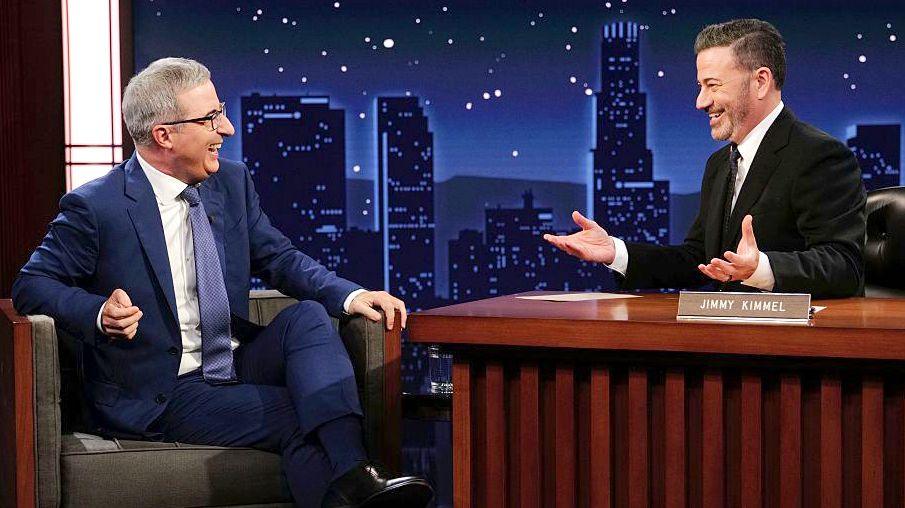What does the FCC do - and can it revoke a TV network's licence?
Watch: Jimmy Fallon among US talk show hosts sharing on-air reactions to Kimmel's exit
- Published
President Donald Trump has suggested that TV networks that give him "bad publicity" should be stripped of their licences, raising questions about the administration's authority to do so.
"I mean, they're getting a licence. I would think maybe their licence should be taken away," Trump told reporters aboard Air Force One while returning from a state visit to the UK.
The remarks came after the threat of regulatory action from the administration led ABC to suspend late-night TV host Jimmy Kimmel.
Kimmel had made comments about the Charlie Kirk murder suspect, saying Trump supporters had tried to "characterise this kid as anything other than one of them".
In the US, broadcasting licenses are issued by the Federal Communications Commission (FCC), which raises the question: can the Trump administration actually revoke broadcast licences? And does the FCC have the power to regulate content?
What is the FCC and what does it regulate?
The FCC, created in 1934, was originally tasked with authorising then-scarce radio – and later TV – broadcasting frequencies.
It holds the most authority over local TV and radio stations, but it does not generally regulate cable or satellite TV channels or online content, according to its website.
The commission does not directly oversee the national networks – NBC, ABC, CBS and Fox are the biggest - which provide news, sport and other programming to local outlets.
It sets rules for disclosing sponsors, emergency broadcasts, and content regarding obscenity and decency.
Additionally, the FCC handles expanding internet access and reviewing mergers and acquisitions of telecommunications companies.
Daniel Deacon, assistant professor of law at the University of Michigan, says that the FCC can effectively stop corporate mergers by denying the transfer of broadcast licences to the new owners.
"They can effectively kill a deal by telling a broadcasting company that they can't have the licences of the company they're buying," he says.
Is the FCC controlled by Democrats or Republicans?
The FCC is led by five commissioners, appointed by the US president and confirmed by the Senate. No more than three commissioners can be from the same political party.
The current chairman is Brendan Carr, a Republican who has been a commissioner since 2017. Carr was promoted to lead the commission at the start of Trump's second term.
The other FCC commissioners are Anna Gomez, a Democrat, and Republican Olivia Trusty. Two posts are vacant after a pair of commissioners, one Democrat and one Republican, resigned in June.
What did FCC commissioners say about Jimmy Kimmel?
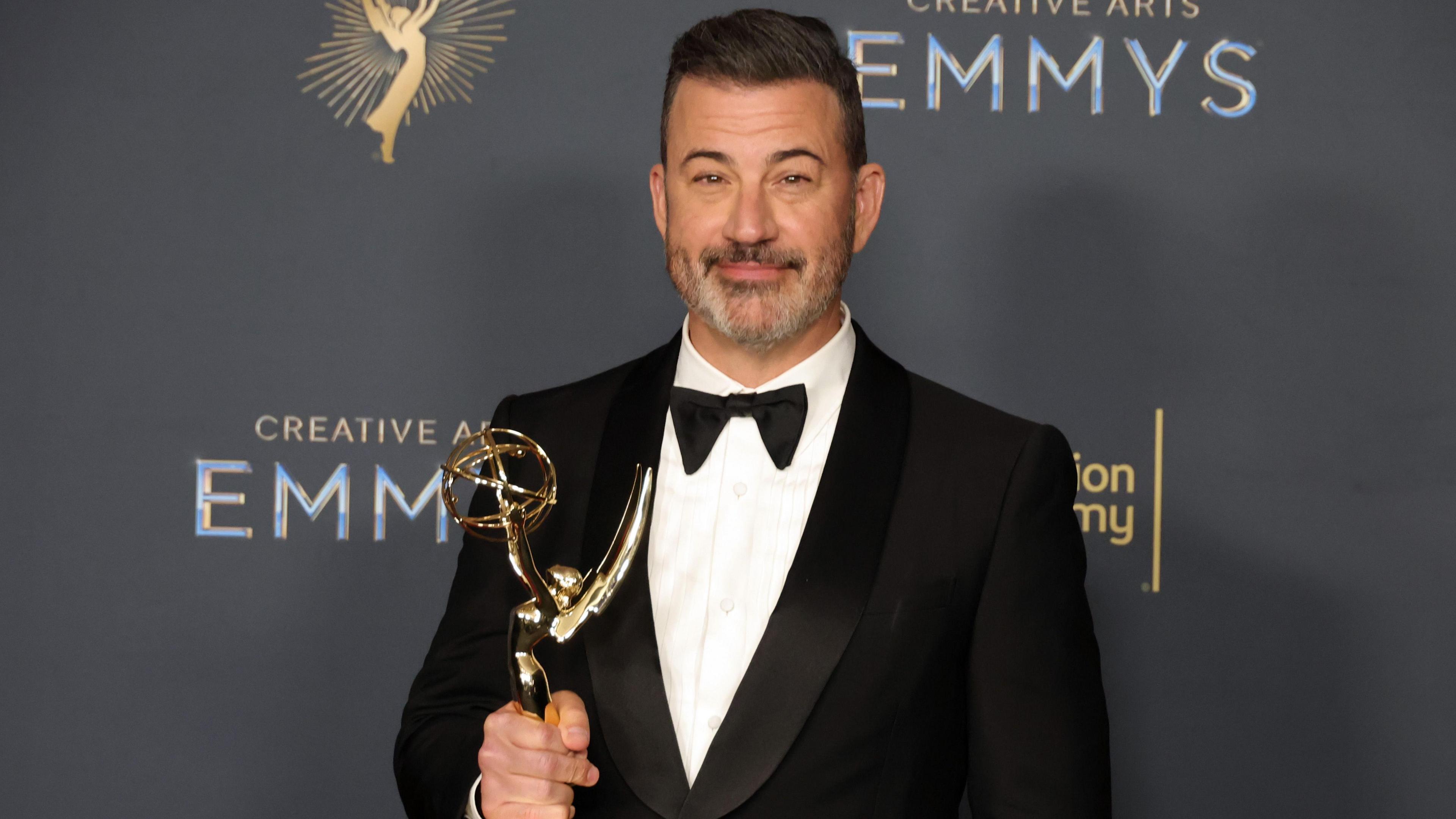
Kimmel mocked Donald Trump and said his supporters were 'desperately trying to characterise this kid who murdered Charlie Kirk as anything other than one of them and doing everything they can to score political points from it'
A controversy arose when Carr, the FCC chairman, called for action against Jimmy Kimmel after the late-night host joked about Trump's mourning of Charlie Kirk and appeared to falsely suggest the right-wing influencer's killer was a Trump supporter.
On Wednesday, in a podcast hosted by Benny Johnson, a long-time collaborator with Kirk's Turning Point organisation, Carr said there were "remedies" the FCC could explore.
"We can do this the easy way or the hard way," Carr said. "These companies can find ways to change conduct and take action, frankly, on Kimmel or there's going to be additional work for the FCC ahead."
Within hours, Nexstar and Sinclair, two companies that own dozens of local stations across the country affiliated with the ABC network, said they would stop airing Kimmel's programme.
ABC later confirmed that Kimmel's program would be suspended indefinitely.
Gomez, the FCC's sole Democratic-affiliated commissioner, issued a statement criticising administration pressure and accusing ABC of "cowardly corporate capitulation".
"We cannot allow an inexcusable act of political violence to be twisted into a justification for government censorship and control," she said.
"This FCC does not have the authority, the ability, or the constitutional right to police content or punish broadcasters for speech the government dislikes."
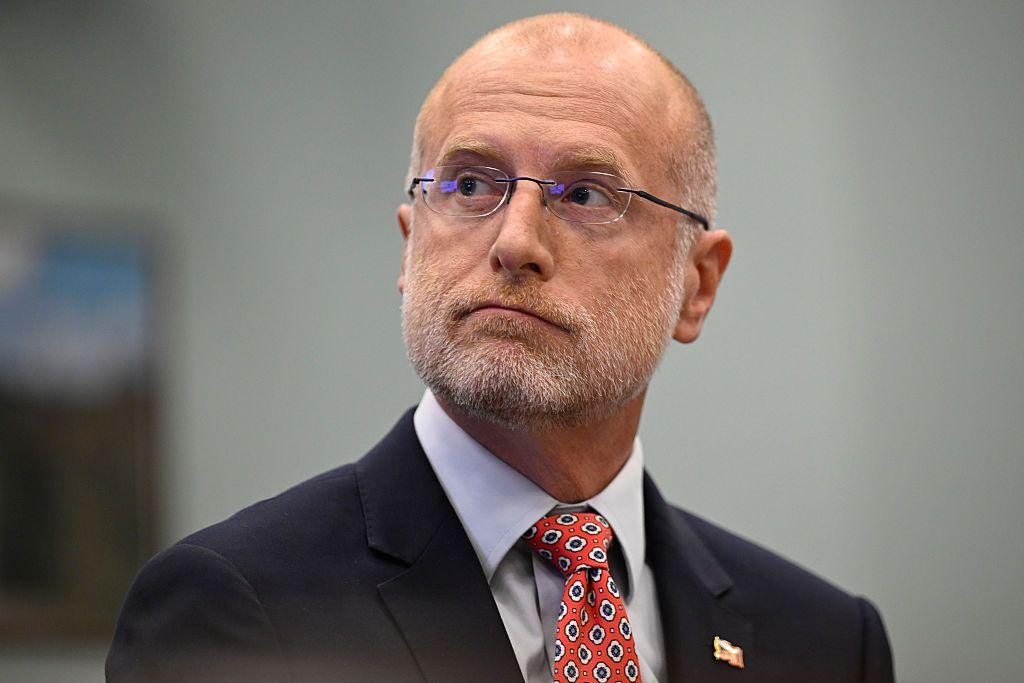
In social media posts, FCC Chairman Brendan Carr cheered the decision to sideline Kimmel
What role did Nexstar play?
Nexstar is the biggest local television station owner in the US with around 200 outlets.
This week it announced a $6.2bn deal to buy a rival, Tegna, which owns more than 60 stations.
The deal would require approval by the FCC and the loosening of rules around industry consolidation.
In a statement, Andrew Alford, president of Nexstar's broadcasting division, called Kimmel's comments "offensive and insensitive at a critical time in our national political discourse".
But critics argued that the company's stance was influenced by the Trump administration.
In response, a company spokesperson said the decision to drop Kimmel's show "was made unilaterally by the senior executive team at Nexstar, and they had no communication with the FCC or any government agency prior to making that decision".
Does the FCC require stations to broadcast opposing views?
In 1949 the commission began enforcing a rule known as the Fairness Doctrine, which required stations to present differing viewpoints on controversial issues.
But broadcasters were given flexibility on interpreting the rule and there was no requirement that all viewpoints be given equal airtime.
The rule was eliminated in 1987 during the Reagan administration as part of a broader push towards deregulation.
Broadcasters are still required to give equal airtime to opposing political candidates during elections, but the FCC does not mandate balanced coverage on other issues.
Can the FCC cancel a broadcasting licence?
As president and on the campaign trail, Trump has periodically returned to the idea that broadcasters who criticise him could lose their licenses.
FCC rules in general require that local stations must broadcast in the public interest.
But its website also mentions that it is barred by law from preventing the broadcast of any particular viewpoint.
That said, experts say the rules are broad and give the agency significant leeway.
"Essentially broadcasters do not have the full First Amendment rights that the rest of us have," says Brent Skorup, legal fellow with the libertarian Cato Institute.
Skorup says enforcement of licencing regulations has dropped off since the Reagan administration in the 1980s, but that a variety of outlets - from socialist broadcasters to religious stations - were sanctioned in the FCC's earlier years.
"In theory the FCC could still rescind station licences," he says. "Both parties over decades have not wanted to relinquish the very powerful licencing system."
Related topics
- Published19 September
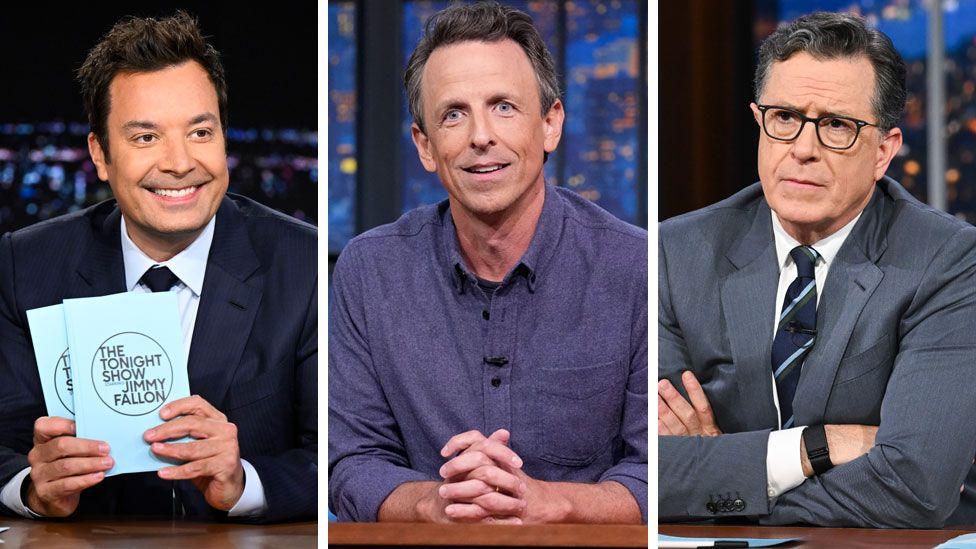
- Published18 September
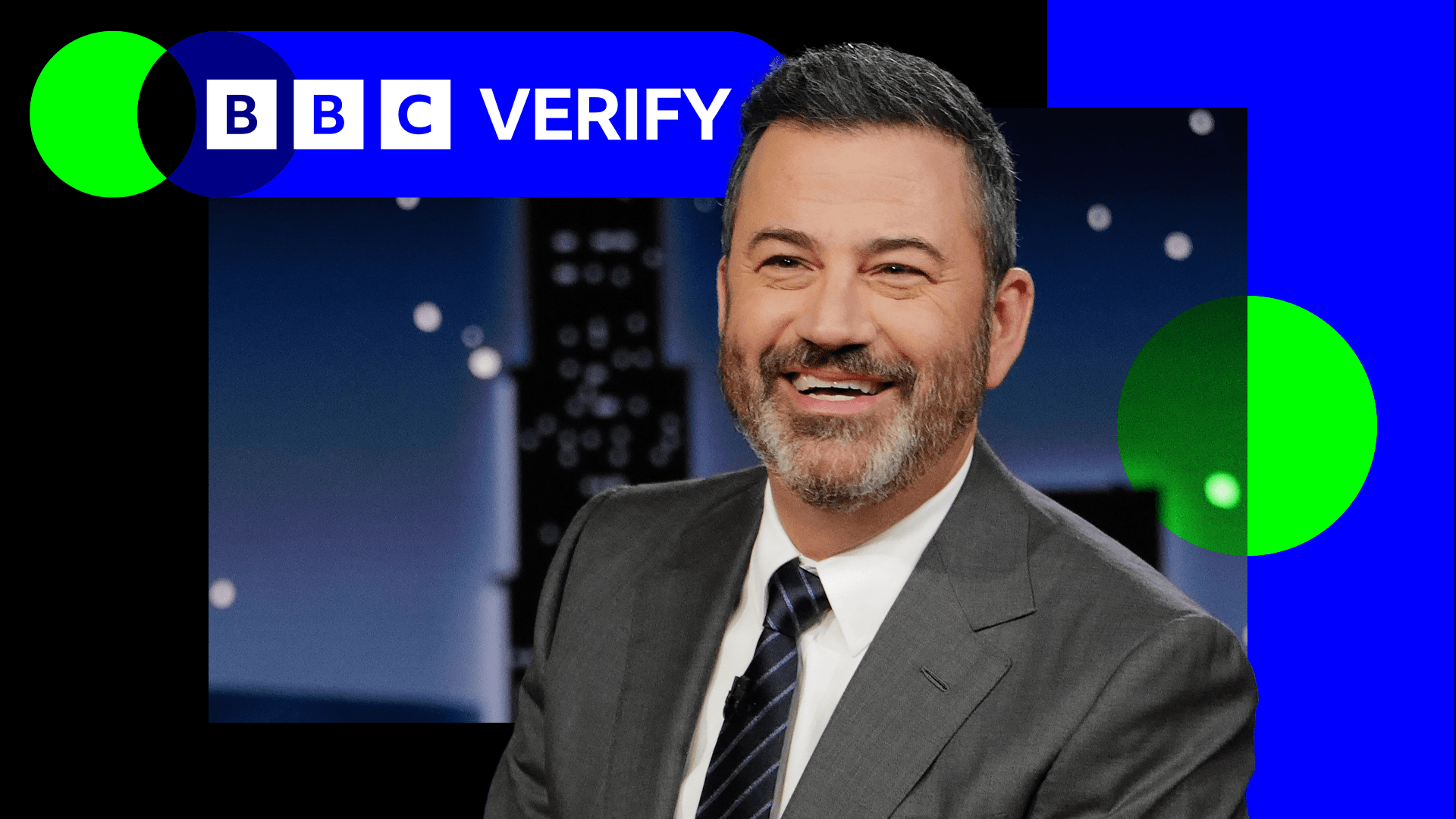
- Published19 September
